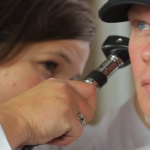For commercial drivers with heart conditions that require implantable cardioverter defibrillators (ICDs) or pacemakers, staying informed about DOT regulations for defibrillators and pacemakers is important. This guide explores how these medical devices impact eligibility for a commercial driver’s license (CDL) and compliance with DOT physical exams.
Key Highlights Regarding DOT Regulations for Defibrillators and Pacemakers:
- ICDs and CDL Eligibility: Having an ICD typically disqualifies an individual from obtaining a CDL because of the potential for sudden incapacitation, which poses significant safety risks.
- Pacemakers and DOT Physicals: Drivers with pacemakers may pass the DOT physical if their heart condition is stable, the pacemaker functions correctly, and there are no severe cardiovascular symptoms.
- Exemption Process: Although rare, some drivers with ICDs may apply for exemptions, which are usually not granted due to the associated risks.
- Impact of Severe Heart Conditions: Conditions such as heart failure, recent heart attacks, or unstable angina often result in disqualification from DOT physicals, affecting the ability to hold a CDL.
- Personal Driving: While commercial driving is typically restricted, individuals with ICDs or pacemakers may be allowed to drive personal vehicles, contingent on their doctor’s approval.
Understanding DOT Regulations:
The Federal Motor Carrier Safety Administration (FMCSA) sets specific guidelines for drivers with ICDs due to the high risk of sudden incapacitation, which can endanger both the driver and others on the road. Generally, ICDs disqualify individuals from passing the required DOT physical to obtain or maintain a CDL.
Driving with a Pacemaker:
Pacemakers, which help regulate heart rhythm, do not automatically disqualify a driver. If a driver’s condition is stable and well-managed, they can potentially pass the DOT physical and continue driving commercially. During the examination, the DOT medical examiner evaluates overall heart health, checks for other cardiovascular issues, and ensures that the pacemaker is working correctly.
Medical Certification:
Drivers with pacemakers must provide medical documentation proving their condition does not pose a safety risk. This certification may involve tests and reports from a cardiologist to ensure the driver’s heart condition is well-controlled. In contrast, obtaining certification with an ICD is much more difficult due to the inherent risks involved.
FMCSA’s Role in Ensuring Safety:
The FMCSA’s role is to set standards that reduce accidents caused by health-related issues, ensuring that commercial drivers meet the necessary health requirements. The agency regularly updates its guidelines based on new research to keep the regulations relevant and effective.
Conclusion:
For commercial drivers, understanding the implications of having an ICD or pacemaker on their career is essential. While pacemakers can allow drivers to maintain their CDL if their health is stable, ICDs generally lead to disqualification. Regular consultations with healthcare providers and staying updated with FMCSA guidelines will help drivers remain compliant and safe on the road.
Need A DOT Medical Exam? Call 704-544-3494!
Ensure your commercial driving career stays on track by getting your DOT medical physical at the Charlotte DOT Exam Center. Whether you have a pacemaker or other heart condition, our certified medical examiners will assess your health to ensure you meet DOT requirements. Walk-ins are welcome on a first-come, first-served basis, but appointments are preferred. For just $70.00, you can complete your exam and receive your DOT medical health card on the same day. Call 704-544-3494 to schedule your appointment today!
Frequently Asked Questions about DOT Regulations for Defibrillators and Pacemakers
- Can I get a commercial driver’s license (CDL) if I have an implantable cardioverter defibrillator (ICD)?
- Generally, no. Having an ICD usually disqualifies an individual from obtaining a CDL due to the high risk of sudden incapacitation, which can endanger both the driver and other road users.
- Is it possible to pass a DOT physical with a pacemaker?
- Yes, drivers with pacemakers can pass a DOT physical if their heart condition is stable, the pacemaker functions correctly, and there are no severe symptoms related to cardiovascular issues.
- Are there any exemptions for drivers with ICDs to obtain a CDL?
- While exemptions can be applied for, they are rarely granted due to safety concerns. Drivers with ICDs are considered at high risk for sudden incapacitation, making these exemptions uncommon.
- What heart conditions could disqualify me from obtaining a CDL?
- Severe heart conditions such as heart failure, recent heart attacks, and unstable angina are among the conditions that may disqualify a driver from passing a DOT physical and obtaining a CDL.

I am the administrator for the Charlotte DOT Exam facility, located in Charlotte NC. I oversee the facility services providing DOT exams in accordance with the standards of the FMCSA. We also provide DOT drug testing with MRO support when required. Drug testing can also be done for non-DOT exams such as pre-employment. In order to minimize wait times, I always encourage our clients to contact us first and make an appointment.
I would also suggest that each individual wanting to test for the CDL health card read the article “Preparing For Your DOT Exam” as it lists several things to bring to the test, such as CPAP usage reports and medicine lists.


